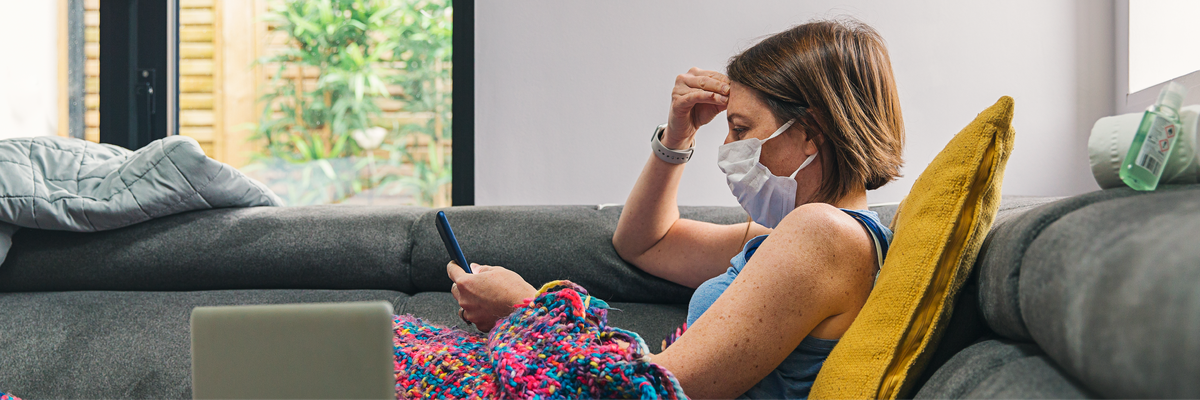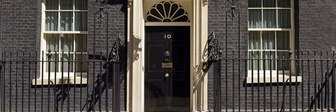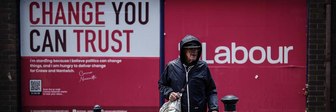Emergencies, which we pray will be temporary, tend to shine a spotlight on problems that are permanent. So it is with Covid. This week’s political spat about shocking food packages for disadvantaged children is a case in point. The virus is indiscriminate in whom it attacks, which means we can say ‘we’re all in this together’. On the other hand, some of us (to rephrase George Orwell) are more ‘in it’ than others. Poverty and inequality are abiding conditions of our society and those who suffer from them are affected by the emergency much more than everyone else. So the question for the time when the emergency comes to an end is this: do we want to do anything serious about the underlying issues of poverty and inequality themselves, or shall we just let the spotlight fade and move on?
As is so often the case, the focus of comment this week about the school meal package fiasco has been more about the politics of the matter than the issue itself. The question being asked has been: ‘How could the government have got itself into such a mess again?’ Of course Boris Johnson was quick to condemn the package supplied by the caterer Chartwells. He had little choice after a photograph of was tweeted by a mother of two who denounced it as ‘a scandal and a disgrace’. The photo inevitably went viral. But Johnson’s critics and his despairing supporters were united in asking how the government could have let it happen in the first place. And it’s not as though this was a one-off: it’s just the latest in a long story of political incompetence in the government’s handling of the effects of the pandemic on the poor.
From a purely political point of view, older practitioners simply shake their heads at how inept the government has been. They cannot understand how Boris Johnson and his ministers didn’t have the savvy to keep ahead of the game. How could it be, they ask, that the Prime Minister could allow himself to be dancing to the tune of Marcus Rashford, the Manchester United player? Rashford has mounted a calm, measured, dignified and universally-supported campaign against child food poverty among the deprived parts of society from which he himself comes.
How could the government not have foreseen the need last summer to extend the provision of free school meals into the school holidays and had to be forced into doing so? Why did it have to be dragged into supplying free school meal packages and why, once it had capitulated, did it not ensure that caterers like Chartwells were delivering adequate meals so that the photos of the paltry fare provided were never plastered over every newspaper? And why even now is there doubt as to whether the packages will go on being provided at half-term?
Anyone could be forgiven for concluding that the government is simply not terribly interested in the poor.
And it’s not as if this can all be put down simply to the education secretary, Gavin Williamson and his universally-recognised ineptitude. There is another case brewing of avoidable political embarrassment concerning the poor which involves the minister who is usually the
most surefooted of all: the chancellor, Rishi Sunak. The temporary upgrade in universal credit, which he announced early on in the pandemic, is due to end in April. If he doesn’t renew it, many poor families will find themselves a thousand pounds a year worse off, a huge amount in relation to their total income. Virtually everyone believes he will have to continue it in the end and of course many, including the Leader of the Opposition, Sir Keir Starmer have been campaigning strongly for him to do so. So why wait, only to be accused of dancing to other people’s tunes and earning a reputation for heartlessness about the poor in the process?
Hugely important though all this is, it centres on the politics of poverty and Covid. It’s not about the real thing itself. The simple fact is that poverty and inequality make those who suffer from them far more vulnerable to the consequences of Covid than everyone else.
In the first place, the poor are much more vulnerable to infection because it is harder for them to practice social distancing, the most important factor in staying free of the virus. The poor tend to live more than others in crowded accommodation. They tend more to be forced to go out to work because their jobs - cleaners, security guards, refuse collectors etc - simply cannot be done from home. And because they have to get to work they are more dependent on public transport. In spite of the many attempts to minimise the risk, buses and tube trains still carry the greatest covid risk.
Then there is the fact that poorer people are more susceptible to being infected in the first place because their underlying health is generally less good. They eat less well and, on average, lead less healthy lifestyles. Obesity is far more prevalent among the poor and obese people are hit much harder by the virus. No-one was surprised when a story appeared in the papers recently of a young woman of twenty-five dying from Covid. The accompanying photograph showed that she’d been massively overweight.
Some have been attributing Britain’s greater death toll from Covid than, say, Germany’s to the fact that Germany is a less unequal society with fewer people ‘at the bottom’ suffering from the underlying health problems that affect such people and make them more likely to die from Covid.
And then there are the effects of Covid even on those among the poor who manage to escape the virus itself. Take, for example, the fact that the schools are closed. Not all those from disadvantaged backgrounds and are eligible to attend school are able to do so, for the simple reason that many schools are full up. So some parents, especially single parents, have no choice but to give up their jobs simply so that they can stay at home and look after their kids. And poor kids who do stay at home are at a huge disadvantage over more affluent children. They are less likely to have the space and the quietness to engage in distance learning and even if they do they’re much less likely to have a laptop.
These are just some of the conditions created by poverty and inequality that the Covid spotlight brings to our attention. So the question is: when this is all over, do we want to do something about it?
Some will answer: ‘Well… we might want to but do what exactly?’ Behind that question there might well lie the unspoken but nonetheless tacit belief that ‘the poor are always with us’ –
and thus it will ever be. But there may also be a more rational explanation of why, even if we wanted seriously to tackle poverty, we probably couldn’t. And that’s because it costs money. Why else is Mr Sunak hesitating before extending the upgrade of universal credit?
The reality is that when we finally emerge from the pandemic the country will face an enormous bill. The size of the deficit in the public finances will dwarf even the size it was after the financial crisis which led to the decade of ‘austerity’. It may come later rather than sooner but eventually we are going to have to pay off at least some of that deficit and that means taxes are going to rise anyway. Is it seriously being proposed, many ask, that we should add to this inevitable increase in the tax burden by raising even more in order to tackle poverty?
As for the politics of all this, some will not be slow to point out that back in 2015, when David Cameron’s government was under attack for prioritising the reduction of the (much smaller) deficit, even the Labour opposition made few promises about reversing welfare cuts because, as one if its senior members said, ‘there isn’t any money’.
But is that really the end of the story? Some will remind us that we’ve emerged before from an emergency – and a much more severe one – determined that we should do something about poverty and inequality in our society.
Back in 1945, at the end of the Second World War, the British elected a government committed to doing just that. And back then the financial deficit the new government faced was over twice as large as the deficit is likely to be after the pandemic is under control. This is not itself an argument for doing something serious about poverty and inequality. That raises profound moral questions. But it is an argument that says: if we really want to do it, it probably can be done.
The question is: do we want to?
What’s your view? Let us know.










